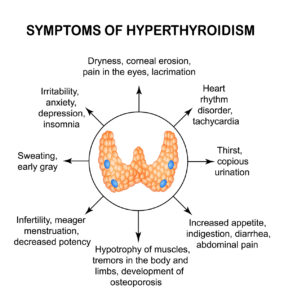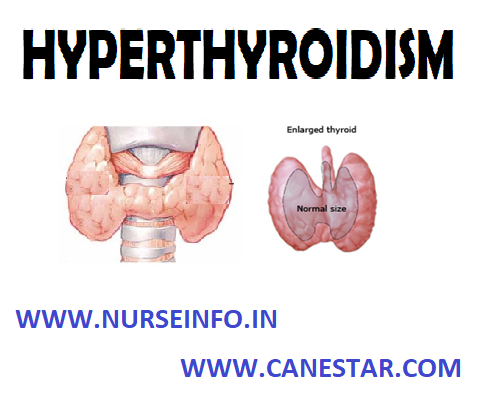
If you’re interested in learning more about hyperthyroidism, you’ve come to the right place. This comprehensive overview of the condition will provide you with important information about this medical condition. The thyroid gland is located in the neck and produces two major hormones: T3 and T4. Both of these hormones influence every cell in the body and play an important role in maintaining the body’s temperature, heart rate, and calorie burning rates. Thyroid hormones are also found in every cell in the body and are produced by this gland. Thyroid hormones are produced by the thyroid gland and are essential to keeping the body’s systems functioning properly. Excessive amounts of T3 or T4 can result in the development of hyperthyroidism and should be treated immediately by a doctor.
Treatment for hyperthyroidism will depend on the cause of the condition, the patient’s age, and the severity of the condition. One type of treatment will not necessarily be effective for everyone. Each patient’s treatment will depend on their age, possible allergies, and conditions such as pregnancy or a history of thyroid problems. In addition, different types of treatments have different side effects and can be used together, depending on the severity of the condition.
In addition to the medications listed above, a doctor may prescribe radioiodine or methimazole to treat hyperthyroidism. The former is considered safe, though it comes with numerous side effects, including a serious one: anemia. The former may lead to a temporary or permanent loss of appetite. However, the latter is highly risky and requires a doctor’s attention. When the condition is not treatable by medication, a surgical procedure called a thyroidectomy may be necessary.
Thyroid hormone is a necessary part of the body’s metabolism, and in some cases, too much of it can lead to increased metabolism. Therefore, it is extremely important to treat hyperthyroidism as soon as possible. Patients should be aware that symptoms may occur, but not all will experience them. If a doctor prescribes a medicine, this is a normal side effect.
Although hyperthyroidism is common in adults, it is a common condition. Your doctor may do blood tests to confirm the diagnosis. Some of the symptoms that may be associated with hyperthyroidism are excessive sweating, dry mouth, and weight loss. In some cases, thyroid syndrome may occur and surgery may be required to treat the problem. The patient will have to undergo several tests to determine the underlying cause of the disease.

Symptoms of hyperthyroidism include an enlarged thyroid gland, cough, and enlarged lymph node. Other symptoms of hyperthyroidism include increased food intake and excessive appetite. If a patient suffers from an overactive thyroid gland, it is important to see a doctor immediately. The disease can lead to an enlargement of the thyroid gland and also cause other problems.
Treatment for hyperthyroidism varies widely and depends on the cause. The best way to manage this condition is to see a doctor to determine the underlying cause and identify any associated symptoms. A thyroid surgeon will make an accurate diagnosis and help the patient cope with the disease. Once the disease is diagnosed, the health site meenakshimission.org
can recommend a number of treatments, including antithyroid drugs. The goal of treating hyperthyroidism is to maintain the health of the thyroid gland.
Although this condition can be treated without a medical diagnosis, it is important to get the correct diagnosis and treatment. The first signs of hyperthyroidism are shaky hands and rapid heartbeat, which are signs of an overactive thyroid gland. If these symptoms persist, it is important to see a doctor immediately. The earlier the disease is detected, the higher the chances of cure. This can help you manage your symptoms and avoid the risks associated with this disease.
The symptoms of hyperthyroidism range from a cough to a swollen thyroid. It can affect all areas of your life. Your thyroid can affect your breathing, your heart rate, and your metabolism. While it increases your metabolism, it can also lead to a higher risk of heart failure or stroke. In severe cases, hyperthyroidism medication can help you manage your condition effectively. This can be a lifesaver if you’re trying to lose weight.
